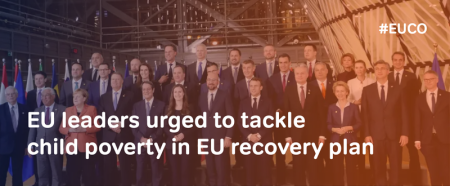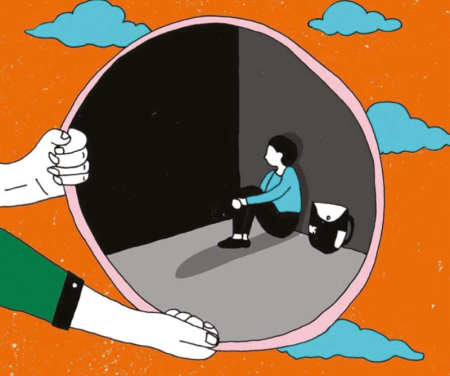
When EU leaders meet on 17–18 July to discuss the EU Recovery Plan and the future long-term EU budget, their decisions will greatly impact the lives of our children – today and in the future. Eurochild urges EU leaders to put the best interests of children at the heart of their decision-making by providing at least 5% of the European Social Fund Plus resources to reducing child poverty in all EU Member States.
Eurochild is a pan-European network of almost 200 member organisations united by the recognition of children as rights holders. Their work is grounded in the United Nations Convention on the Rights of the Child.
They welcome this European Commission’s commitment to develop a comprehensive EU strategy on the rights of the child and a European Child Guarantee. Despite this important show of leadership at the EU level, the picture is more worrying across EU Member States.
- 23 million children in the EU are at risk of poverty or social exclusion. (Eurostat, 2018) That means, 1 in 4 children either do not receive adequate nutrition, have a safe and comfortable home to study in, or resources to thrive.
- In the EU, children continue to be at a higher risk of poverty (24.3%) than the general population (21.9%). (Eurostat, 2018)
- More than 1 in 5 children (0–17 years) live in an overcrowded household in European OECD countries.
Unfortunately, the pandemic and the lockdown has exacerbated social inequalities. School closures, social distancing and confinement have increased, among others, the risk of poor nutrition among children, the risk of domestic violence and reduced access to vital family and care services. Children already disadvantaged before the crisis by poverty, migration status or difficult home environments have suffered most during the lockdown.
Significant efforts will be needed to bridge the educational divide, support vulnerable families and boost child protection systems if we are to avoid the long-term consequences of failing our children. We need more resources and efforts, to tackle and to overcome the challenges raised by the pandemic to ensure that no child in Europe is left behind.
According to a recent study, the economic fallout of the COVID-19 pandemic could increase household poverty by the end of 2020 by 15% worldwide. (UNICEF and Save the Children, May 2020). The alarm on poverty has again been raised. We now urge the European Union, as one of the wealthiest regions in the world, to take action to make child poverty history.
Children are at risk of becoming invisible victims of the pandemic. It is the duty of our leaders to leave them with a better today and tomorrow. Protecting children’s rights is not only a question of values, principles and legal obligations. It is also the foundation on which all children thrive and develop their full potential.
Eurochild, on behalf of the children’s rights community in Europe, is expecting EU leaders to support the proposal in the 2021–27 EU budget that each Member State allocates at least 5% of the European Social Fund Plus to address child poverty, in line with a Council Recommendation on the Child Guarantee.
The allocation of these resources will help to implement the necessary reforms to ensure all children and families receive the services and support they need to thrive. Eurochild, together with all the children in Europe, stand ready to contribute to the building of a more inclusive and sustainable future for all.
Download the statement as a PDF















